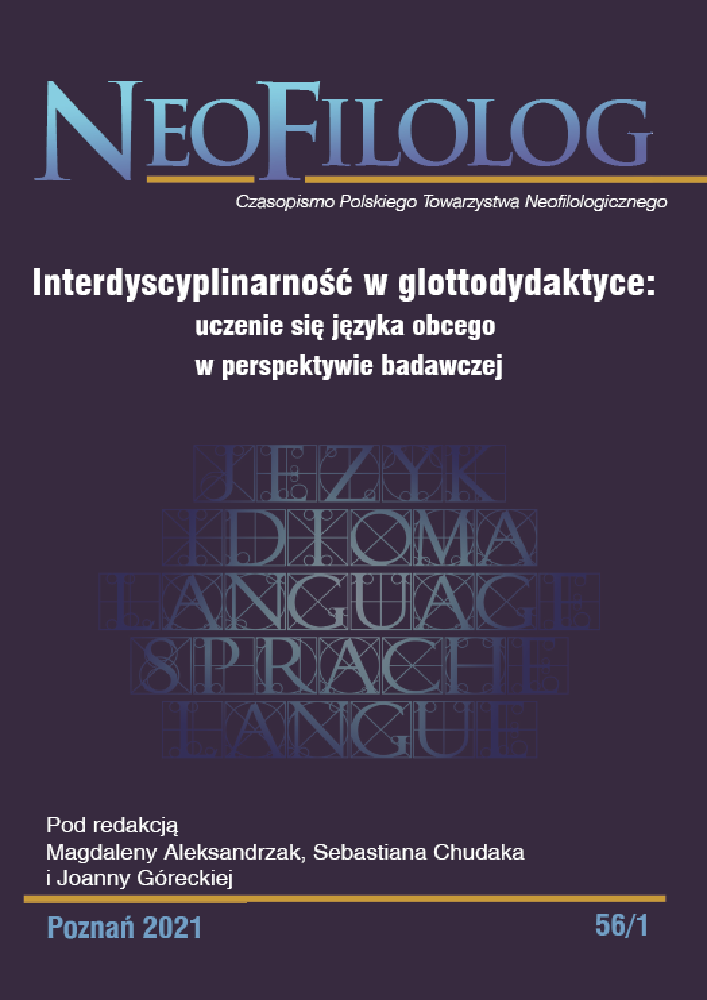Abstrakt
Feedback is one of the key tools used to regulate the process of learning. In order to be effective, it must provide the students with accurate information and guidelines concerning their work by not only showing them mistakes, but also pointing out what they already know and giving advice to help them improve their skills. Poorly executed feedback may damage the students’ motivation instead of reinforcing it. Thus, it is important to know how students perceive different feedback techniques and how they react to them. To answer these questions, we led a research among Polish bilingual high school students learning French. We asked them about their preferences concerning feedback and about its perceived influence on their motivation. The results show students prefer detailed comments which show them positive and negative aspects of their work, without harming their self-esteem, i.e. by giving feedback in front of their peers. Such practices, according to students, have a beneficial effect on their motivation.
Bibliografia
Allal L. (1991), Vers une pratique de l’évaluation formative. Bruxelles : De Boeck.
De Vecchi G. (2014), Évaluer sans dévaluer. Paris : Hachette.
Grangeat M. (2014), Connaître les principes de l’évaluation formative. Online : http://webcom.upmf-grenoble.fr/sciedu/evacodice [consulté 10/12/2019].
Guillemette F. (2004), Enseignement stratégique et autonomisation, (in :) Presseau A. (dir.), Intégrer l’enseignement stratégique dans sa classe. Montréal : La Chenelière, 141-162.
Łobocki M. (2009), Wprowadzenie do metodologii badań pedagogicznych. Kraków: Oficyna Wydawnicza „Impuls”.
Niemierko, B. (1997), Między oceną szkolną a dydaktyką : bliżej dydaktyki. Warszawa : WSiP.
Noiroux K., Simons G. (2016), La correction de l’expression écrite en langue étrangère et son exploitation pédagogique. « Recherches en didactique des langues et des cultures » 13 (3). Online : http://journals.openedition.org/rdlc/1302 [consulté 18/12/2019].
Wilczyńska W., Michońska-Stadnik A. (2010), Metodologia badań glottody-daktycznych. Kraków : Avalon.
Licencja
Prawa autorskie (c) 2021 Julia Lipińska

Utwór dostępny jest na licencji Creative Commons Uznanie autorstwa – Bez utworów zależnych 4.0 Międzynarodowe.
Przedstawiany utwór (artykuł) upubliczniany jest na podstawie umowy z autorem i na licencji Creative Commons Attribution-NoDerivatives 4.0 International (CC BY-ND 4.0).
Użytkownicy mają obowiązek podania wraz z rozpowszechnionym utworem, informacji o autorstwie, tytule, źródle (odnośniki do oryginalnego utworu, DOI) oraz samej licencji;
- bez tworzenia utworów zależnych,
- utwór musi być zachowany w oryginalnej postaci.
Uniwersytet im. Adama Mickiewicza w Poznaniu zachowuje prawo do czasopisma jako całości (układ, forma graficzna, tytuł, projekt okładki, logo itp.).
